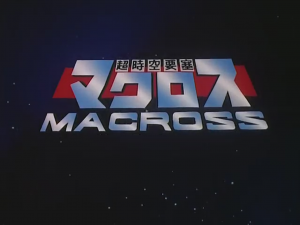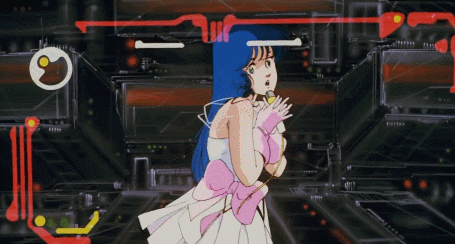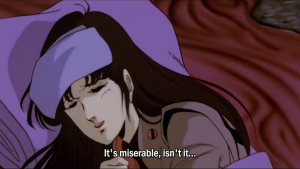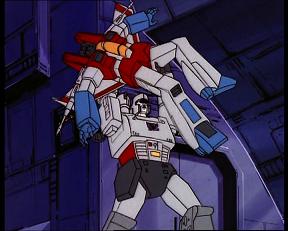(To ensure there’s no confusion here: I am not a lawyer, I am a writer who has an interest in these subjects because I would like to not be sued or ripped off. Noble motivations, I assure you.)
Copyright, it’s a funny thing. Having recently stepped into a hot debate, I found myself watching people argue with certainty over the nature of copyright law. Amusingly, most of these people were so absolutely sure they knew how copyright law works that you’d think they were all lawyers. For or against, both sides of the debate thought they knew for a fact what the law said on the subject. In fact, both were pretty adamant that the other side were thieves. And they “knew for a fact” because, according to these well-meaning souls, copyright is a simple to understand system that follows common sense. So, once I stopped laughing, I started writing on the subject.
As I’ve been pointing out ever since, there isn’t always as clear a picture as people like to believe there is. In some very black and white areas, it works – you can’t just duplicate someones work or distribute pirated copies (usually). But once you get to the matters of intellectual property, you’d be amazed how hard it is to parse out the solution. The system as it stands today has many glaring flaws that make it difficult to trust that it’s always going to work. Certain provisions within the copyright and trademark laws are intentionally murky, some things are entirely subjective, and most of the time you can’t tell what the truth is until a judge decides. This results in a system where no one is really able to get anything clarified until a lawsuit comes into the conversation. Unfortunately, the little guy can rarely afford that, so the big boys usually win.
In the end, most of us depending on the law to protect our works are depending on people acting in good faith. Generally, we like to hope that people are honest players. We like to imagine that legal action is like a big red button behind a glass case you break only in case of emergencies. In a grey situation, we like to imagine that people stop to hesitate and consider whether they should actually do it. No one would blindly and willfully hit that button just for the sake of hitting it, right?
Wrong.
A plethora of people abuse the system to lock it in their favor even if it shouldn’t be. A great example would be the situation mentioned last time when Saban, owners of Power Rangers, sued a game parodying Super Sentai and other Tokusatsu series. This game existed well within fair use, being a parody based on an entire genre that used no copyrighted or trademarked materials. But, apparently, when you see a team of colorful characters climbing into a bizarre machine – Saban wants you to think of them.

It’s a ridiculous situation, but one that happens all the time. Some companies go out of their way to sue for things they have no right to sue over. They’ll plant themselves on a copyright, trademark, or patent and then use that to strong-arm other companies. But, to be fair to Saban, they do have some legal claim to the IP and that makes them a lesser of evils. Instead, to find a really glaring example of copyright abuse in a similar situation, I’d like to tell you about a franchise from Japan and why a lot of you probably haven’t heard of it before…
The Gold Standard Of Copyright Trolls

In the early 1980s a mecha design and animation studio, Studio Nue, had an idea they wanted to put to air. Gundam had recently come out and made an impression that you could have Mecha (normally used in Super Robot shows) as a part of a serious plot revolving around real things. Studio Nue was inspired and started developing a more serious mecha show based on the ideas of a newcomer named Shoji Kawamori. Together the group came up with a concept called Battle City Megaroad, about a star ship containing an entire city being stranded deep in space and forced to fight their way home. The idea was coming along nicely at first, most of the early production making its way into later installments in some fashion, before a hitch came up – their investors.
Wiz, a group that was going to be providing the funding for this project initially, had an entirely different idea in mind. Though planning to fund 48 episodes of the show, Wiz wanted it to be a lighthearted comedy set in space. For anyone familiar with Kawamori’s work, this wasn’t going to happen. Kawamori often likes to end things on bittersweet notes. Sure, some things are funny, there’s always a love story involved, but once the happy ending happens he’s going to make sure someone dies, gets swallowed by a black hole, or vanishes into the heavens in a blaze of glory.

So Studio Nue and Wiz had to part ways and Nue was sent looking for a new backer who would be okay with their plans to drive humanity to the brink of extinction.
In stepped Big West Advertising, a company which was set on producing a trilogy of series under the “Super Dimensional” banner. However, Big West had some concerns as they entered the deal. The first was the name: Megaroad. Being a fan of Shakespeare, one of the Big West executives wanted to rename this space opera “Macbeth” for reasons no one could understand. And, hell, seeing as what happened later, invoking the name of The Scottish Play was probably a mistake. Still, Nue was willing to compromise, taking Macbeth and altering it a little to create something unique, and renamed their series Super Dimensional Fortress Macross.

But, while the first problem was just a little inconvenient, the second problem that Big West had would lead to all their future woes. Unwilling to fund 48 episodes, Big West instead was aiming for 27 and felt that even that was pushing it in terms of cost. Though willing to stick it out, they didn’t want to do it alone, and sought out another investor to partner with. They made a deal with Tatsunoko Productions, a legendary animation studio responsible for countless classics and best known here in the west for Speed Racer – a charmingly low budget anime that would eventually become the basis of an over the top seizure inducing movie by the Wachowskis.

The deal with Tatsunoko meant that Macross would get its funding and produce 36 episodes, allowing Studio Nue to do more of their original plan. And, in return, Tatsunoko would get a piece of the Super Dimensional franchise and the rights to distribute the series internationally. Unfortunately, Tatsunoko took this as meaning they owned all of the rights to Macross outside of Japan. Were copyright as common sense as most people believe, this wouldn’t be much of a problem. But thanks to the nature of the system as it stands, this would lead to a clusterfuck where everyone involved would be haunted for the next few decades by jet robots and a girl doing this.

Because Tatsunoko had no intention of ever actually dubbing or subbing the show themselves, instead deciding to go ahead and outsource it to a company here in the west. They entered a deal with Harmony Gold, a company that has done anything but create harmony in these matters, and just sold all of the rights to them. Harmony Gold then created a relatively cheap dub of three different series, fused them into one, and called their Frankenstein monster “Robotech”. Though many remember the show today, and there are always talks of potential movies in the future, it’s not like people are talking about adapting the other two shows “Southern Cross” and “Mospeada”. No, the part that anyone remembers of Robotech is Macross and Harmony Gold damn well knows it.
And, unfortunately, upon buying the rights from Tatsunoko, Harmony Gold went to the copyright offices and filed everything they possibly could. Studio Nue, eventually realizing the problem, took Tatsunoko to court to take back all of the rights Tatsunoko had apparently sold away. The Japanese courts decided on the subject and found that Studio Nue, not Tatsunoko, had control of the intellectual property in and of itself. But, according to the US, that really doesn’t mean anything because Harmony Gold filed first on this side of the ocean. Effectively, despite having done nothing to create the original idea, buying the rights from someone who had no authority to sell it, and repackaging the material into a completely different product – Harmony Gold owns half of Macross outside of Japan.

This leads to a few key problems and all of them trace back to one root cause: Harmony Gold are litigious as all hell and often seem to have nothing better to do with their time. Since creating Macross and finding it was a surprise success, Studio Nue has released over 20 iterations of Macross including films, games, television series, and manga. Of those, the west has had official releases of five, with none of the actual TV series after the original receiving an official English release. The reason for this is that any attempt to bring Macross to the west would require Harmony Gold being at the table and Harmony Gold does not play well with others. As one fansub group once put it: “we’re going to be doing this since real legal anime sites can’t deal with the licensing clusterfuck that is called Macross.”
And HG’s rabid demeanor isn’t reserved just for the co-owners of the copyright, oh no. Over the better part of three and a half decades Harmony Gold has made a surprisingly large portion of their income by abusing the hell out of their copyright. Do you like jets and robots? Do you like jet robots? Well Harmony Gold doesn’t want you to. They’ve even gone out of their way to sue Hasbro for infringing on their idea that jets could transform into robots. Given that the entire premise of Transformers is “X transforms into X”, this was an asinine case that had to be dismissed – but not before Hasbro gave HG their blood money to prevent future action.

To give HG some credit, they were dealing with a single toy design in particular, that of an Autobot named Jetfire. Jetfire, as it turns out, was in fact just a release of the Macross “Valkyrie” under the Transformers banner – legally licensed in Japan. The funny part is that this was never a problem for Hasbro in the past because they actually bought that license a year before Harmony Gold made their deal with Tatsunoko. So when Hasbro re-released one of their classic toys that they had legally licensed the first time around, they finally ran afoul of Harmony Gold. Seeing as they got a license from the legal owners a year before HG made their deal and actually produced their figures before Robotech hit the air, Hasbro technically had a better claim to the design than Harmony Gold – which is probably why it got settled.
In fact, a company doing the right thing has never really mattered to HG. At one point Battletech/Mech Warrior, a popular series of board and video games, legally purchased rights to duplicate some mecha from Macross in their games from the actual owners – Big West and Studio Nue. Harmony Gold responded to this by taking legal action and forcing FASA (who bought the rights legally) to remove the designs from their games. In fact, they then went after the fans of these games and forced them to remove images from their sites that featured the mecha they supposedly “owned”. That’s right, Harmony Gold has threatened legal action against the fans of other people’s work.
Meanwhile, as Harmony Gold continues to major in lawsuits they minor in animation. Repeatedly they’ve released continuations of Robotech and found very little success. So far, almost all attempts to bring it back to prominence have inevitably ended up like someone from the Midwest visiting a Taco Bell restroom: shitty, painful, and best forgotten. In fact, the only times they’ve actually done something noteworthy with the property have been when they straight-up ape the original and find a way to repackage Macross again. As of this writing, the next attempt at that seems to be the selling of the film rights to adapt the “Macross Saga” as a live-action Robotech film.

In a discussion where people are often so eager to call others thieves, it’s best remembered that the biggest thieves are usually the people who do their theft within the system. Sure, there will be pirates out there who sell illegal copies. Yes, someone may copy your idea and sell it off as if it was their own. But rarely in this world can you find a private individual who could have the power to not only steal someone’s work but then make them pay to get it back. No, that’s the domain of corporations, and it’s a game they play all too well.
So, the next time you’re adamant that a corporation owns a copyright, step back and ask yourself why they own it. Are they really the “creators” behind the franchise? Or did they just happen to file the right paperwork for it? It’s not applicable to all cases, it’s not even applicable to the one that started this discussion. But it does highlight the fact that copyright isn’t always as common sense as it should be. Despite what we would all want to believe, in the end, it’s best to remember that our system doesn’t always side with the creators. And, frankly, when that does happen…
It’s usually the rest of us that miss out.
(I write novels. Thankfully, the loophole that let Harmony Gold do this wouldn’t apply to me. I don’t trust them, no sir. However, if you know of such a loophole, feel free to tell me on twitter.)







